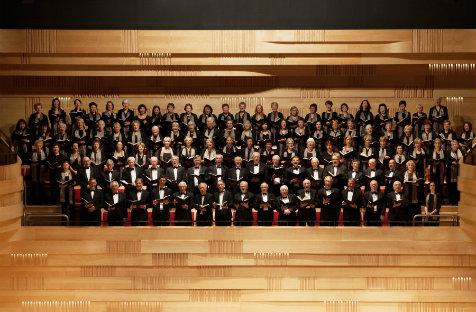A long standing Christmas tradition (and now sometimes at Easter), Handel’s Messiah was brought to us in a terrific performance by the Willoughby Symphony, conducted by Dr Sarah Penicka-Smith and four terrific soloists, guest stars from Pacific Opera.
Messiah is not just a work to the glory of God or a reworking of the Easter and Christmas stories. It is a product of the Baroque and the Age of Enlightenment. First performed in 1742, it is in some ways a political work. Handel’s music is what has made the work most enduring (Jensen’s libretto was written separately, and first). Messiah follows the story of Christ from birth to crucifixion and resurrection, but it also delves into Israelite history, exploring the prophets who preceded the Messiah (especially Isaiah) and looks forward to the birth of the Church. There is no single dominant narrative voice and little use is made of quoted speech.
The orchestra played splendidly under the dynamic conducting of Dr Penicka-Smith. It was a rather small orchestra this time, heavily dominated by strings, with some percussion and woodwind. Although the harpsichord, played by Monika Kornel, was almost centre stage, it and the oboe were completely drowned out by the rest of the orchestra and/or the choir.
The full bodied choir was a magnificent, dramatic participant in the performance – at times explosively powerful, sometimes rumbling and roaring, at other times joyously bubbling. In some parts the singing rippled, sparkled and jumped. The very complicated and tricky final extended ‘Amen’ was handled very well. And yes, continuing musical tradition, we all stood for the exuberant ‘Hallelujah’ chorus.
The four soloists were excellent. Soprano Qestra Mulqueeny was exquisite in a glorious turquoise dress that had a marvellous, textured long skirt. Her ‘I know that my redeemer liveth’ was luscious, assured and magical. She also soared in the earlier, heavenly ‘How beautiful are the feet of them’.
Mezzo–soprano Emily Edmonds was stunning in a long purple evening gown. She has a fantastic, deep, creamy voice. She was spiky and fiery in ‘But Who’ and positively glowed in ‘Behold’. She was disturbed, very sad and emotional in ‘He Was Despised’, quite an extended solo, and her other solo, ‘Thou art gone up on high’ was also glorious.
Terribly handsome tenor Kaine Hayward was also marvellous. In ‘He that dwelleth’ and ‘Thou shalt break them’ he was like a stern angel. His opening ‘Comfort Ye’ was superb.
Bearded, mustachioed baritone David Hidden was also terrific. His ‘Behold, I tell you a mystery’ and ‘The People that walked in darkness’ were thrilling, with gliding, throbbing strings.
A terrific performance greatly enjoyed.
Rating: 4 stars out of 5
Handel’s Messiah
Willoughby Symphony
Choirmaster/Conductor Dr Sarah Penicka-Smith
Qestra Mulqueeny (Soprano )
Emily Edmonds (Mezzo-Soprano)
Kaine Hayward (Tenor)
David Hidden (Baritone)
Running time: 2 hours 30 mins (approx) including interval
The Concourse, Chatswood
23 and 25 November





